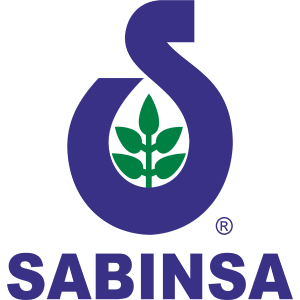A cosmeceutical is defined as an ingredient with medicinal properties which manifests beneficial topical actions or provides protection against degenerative skin conditions.
Cosmeceuticals generally exert one or more of the following actions:
- Antimicrobial action
- Anti-irritant/Anti-inflammatory action
- Free-radical scavenger (antioxidant) effects
- Skin-bleaching action
- Maintenance of skin texture
Sabinsa has recently introduced several ingredients that are being used in cosmetic formulations:
Tetrahydrocurcuminoids (THC) (patent pending): These are white curcuminoids derived from the yellow colored curcuminoids (the antioxidant principles in Curcuma longa). This color free product is included in cosmetics as an antioxidant and anti-inflammatory agent.
Aleuritic acid : Chemically 9,10, 16-trihydroxypalmitic acid, aleuritic acid is a major constituent acid (~35%) of lac resin (shellac). Aleuritic acid is a potential substitute for alpha-hydroxy acids and is valued for its antioxidant action on the skin.
Boswellin(r)-CG: A standardized extract from the gum resin of Boswellia serrata, Boswellin(r)-CG (cosmetic grade) contains 40% beta-boswellic acids. Boswellic acids are proven anti-inflammatory agents for topical as well as oral use.
Ursolic acid is a pentacyclic triterpenoid compound. It is an isomer of oleanolic acid. Natural sources include Rosemary (Rosmarinus officinalis) and Tulsi (Ocimum sanctum). Cosmeceutical benefits include facilitating collagen and elastin synthesis, restoring the overall health and functions of photoaged skin as well as facilitating tissue repair.
Over the past few months, Tetrahydrocurcuminoids (THC) have found increasing acceptance in cosmetic applications. An antioxidant used in cosmetic applications should have the capability to efficiently quench free radicals on the surface of the skin. In this context, studies performed by Rutgers University revealed the superior free radical scavenging ability of THC. In a standard test procedure known as DPPH (1,1 diphenyl-2-picrylhydrazyl)-radical scavenging method, Curcuminoids and THC were shown to be effective antioxidants. Their efficacy is concentration dependent, with THC being more effective even at lower concentrations. Besides, THC has zero irritation potential on the skin.
Besides topical applications, the use of THC as a dietary antioxidant supplement has also been explored. Although higher priced than the parent curcuminoids on account of the additional processing cost, THC are valued as the ultimate metabolites of the Curcuminoids in vivo. Several independent studies reported the superior antioxidant effects of THC1-5.
- Osawa, T. et al. (1995). Biosci. Biotechnol. Biochem. 59(9): 1609-12.
- Sugiyama, Y. (1996) Biochem Pharmacol, 52(4):519-25 Aug 23
- Nakamura, Y. et al. (1998) Jpn J Cancer Res, 89(4):361-70
- Mukhopadhaya, A. et al. (1982). Agents and Action. 12:2287.
- Rao, T.S., et al. (1982). Ind J. Med.Res., 75, 574-578








